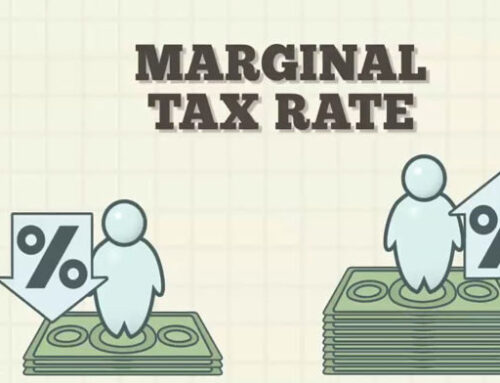A Tax Identification Number, also known as a Business Number by the CRA, taxpayer registration number, is a unique 15-character code assigned to your business by the Canada Revenue Agency (CRA).
Understanding the Business Number: Taxpayer Registration Number
The Business Number assigned by the Canada Revenue Agency (CRA) is a 15-character code that can be divided into three parts. Let’s take a closer look:
- Nine-digit Business Identification Number (BIN): This is your company’s unique identification number.
- Program Identifier: Typically consisting of two letters, this identifies the specific program associated with your business.
- Four-digit Program Account Number: This taxpayer registration number is assigned to your program account. For example, 123456789 RT0001 would be an account number.
Consider your Business Number as your business tax identification taxpayer registration number, as it serves the purpose of identifying your business for tax-related matters. When you register for one of the major program accounts required for your business, the CRA will assign you a Business Number.
These program accounts include:
- GST/HST (General Sales Tax/Harmonized Sales Tax)
- Payroll deductions
- Import and export privileges.
- Corporation taxation
While the program IDs and account numbers remain the same across the four program accounts, the nine-digit tax ID number (Business Number) is unique to each business. To obtain a Business Number, you can utilize the Canada Revenue Agency’s Business Registration Online service. It’s important to note that in Quebec, GST/HST accounts are not included in the Business Number. Revenue Québec requires a separate account for GST/HST. Additionally, a taxpayer registration number ID or business number may be required to access other tax accounts, including excise tax.
Understanding the GST/HST Tax in Canada
In Canada, there are two types of sales taxes: provincial sales taxes and GST/HST (Goods and Services Tax/Harmonized Sales Tax). Provincial sales taxes vary in terms of tax bases and rates across different Canadian provinces.
The GST/HST is a value-added tax that operates on an input and output system. When taxpayers make purchases of goods or services, they pay GST/HST as an input tax. On the other hand, taxpayers who sell goods are required to collect GST/HST from their customers, which is considered an output tax. Taxpayers deduct the input taxes from the output taxes they collect and remit the resulting tax difference to the relevant taxing authority. This system ensures that the taxpayer registration number is ultimately paid by the end consumer, taxpayer registration number.
Also read: Tax Impact of Ride and Accommodation Sharing
Registration Requirements for GST/HST in Canada
In Canada, businesses that engage in commercial activities and sell goods or services subject to GST/HST generally have an obligation to register for GST/HST. However, there are exceptions for businesses that qualify as “small suppliers” or those that do not have a permanent place of business in Canada and do not conduct business taxpayer registration number.
The term “small supplier” typically refers to a business with total taxable sales revenues of $30,000 CAD or less during the current quarter and the preceding four quarters. Even if a non-resident business does not meet the criteria for being a Canadian resident, it may still be required to register for GST and HST if it has an established permanent presence in Canada.
Determining whether a non-Canadian resident is conducting business in Canada requires a factual analysis. Factors to consider include the location of employees or agents, where the delivery of goods or services will take place, and where payment will be made. Taking these factors into account is crucial in determining the registration obligations for non-resident businesses in Canada.
Is a tax identification number required for every business in Canada?
Not every business in Canada requires a tax identification number. If your small business falls under the category of a “small supplier” and does not engage in activities that require GST or HST registration, you may not need to obtain a business number or register for these taxes.
The CRA defines small suppliers as businesses whose total taxable revenues (before expenses) from all their operations are less than $30,000 in the last four consecutive fiscal quarters and in any given quarter. If your business meets these criteria, you are considered a small supplier and are not required to register for GST or HST, taxpayer registration number therefore not needing a business number for tax purposes.
How can I obtain a tax identification number?
There are multiple ways to obtain a business number from the CRA:
- Online registration: You can register your business online through the CRA’s Business Registration Online service (BRO).
- Phone registration: You can call the CRA at 1-800-959-5525 and provide the necessary information verbally using Form RC1.
- Mail or fax registration: Fill out Form RC1 and send it by mail or fax to the nearest tax department office.
During the business number registration process, you can also choose to register for any relevant programs simultaneously.
Also read: Federal Budget’s Impact on Your Wallet and Taxes: 6 Key Factors
Do I need to incorporate my business at the federal level?
If you choose to incorporate your business at the federal level, Innovation, Science, and Economic Development Canada (ISED) will assign you a business number. To register a federal corporation, you can seek assistance from Corporations Canada. It is important to understand the differences between federal and provincial corporations before proceeding with the application. Once you have obtained the Business Number from ISED, you can then apply to the CRA for any of the tax identification programs mentioned earlier.

Conclusion
A Tax Identification Number (TIN), provided by the Canada Revenue Agency (CRA), is a 15-character code assigned to your business. It consists of an identifier for taxpayer registration number the program, a nine-digit business ID number, and an account number.
The TIN can be obtained through various methods such as mail, phone, or fax with assistance from the CRA. For sole proprietors with multiple businesses, a single TIN is sufficient unless any of the businesses are partnerships or trusts, which require separate numbers.
Businesses that qualify as “small suppliers” have global sales taxable at $30,000 (CAN) or less, and they may have different registration requirements for GST and HST, even if they are not Canadian residents.
By following the appropriate registration process, businesses can acquire their TIN and comply with the necessary taxpayer registration number identification programs.
Recent Posts
FAQ
Do I need separate numbers for each of my businesses?
For a sole proprietor with multiple businesses, only one business number is required as long as none of the businesses are partnerships, trusts, or corporations. In such cases, each partnership, trust, or corporation will need its own business number. It's important to clarify this as it is a common misunderstanding.




